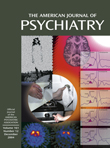Abstract
OBJECTIVE: The authors provide a detailed perspective on the correlates of comorbid anxiety in a large, well-characterized sample of bipolar disorder patients. METHOD: Anxiety and its correlates were examined in a cross-sectional sample from the first 500 patients with bipolar I or bipolar II disorder enrolled in the Systematic Treatment Enhancement Program for Bipolar Disorder, a multicenter project funded by the National Institute of Mental Health designed to evaluate the longitudinal outcome of patients with bipolar disorder. RESULTS: Lifetime comorbid anxiety disorders were common, occurring in over one-half of the sample, and were associated with younger age at onset, decreased likelihood of recovery, poorer role functioning and quality of life, less time euthymic, and greater likelihood of suicide attempts. Although substance abuse disorders were particularly prevalent among patients with anxiety disorders, comorbid anxiety appeared to exert an independent, deleterious effect on functioning, including history of suicide attempts (odds ratio=2.45, 95% CI=1.4–4.2). CONCLUSIONS: An independent association of comorbid anxiety with greater severity and impairment in bipolar disorder patients was demonstrated, highlighting the need for greater clinical attention to anxiety in this population, particularly for enhanced clinical monitoring of suicidality. In addition, it is important to determine whether effective treatment of anxiety symptoms can lessen bipolar disorder severity, improve response to treatment of manic or depressive symptoms, or reduce suicidality.



